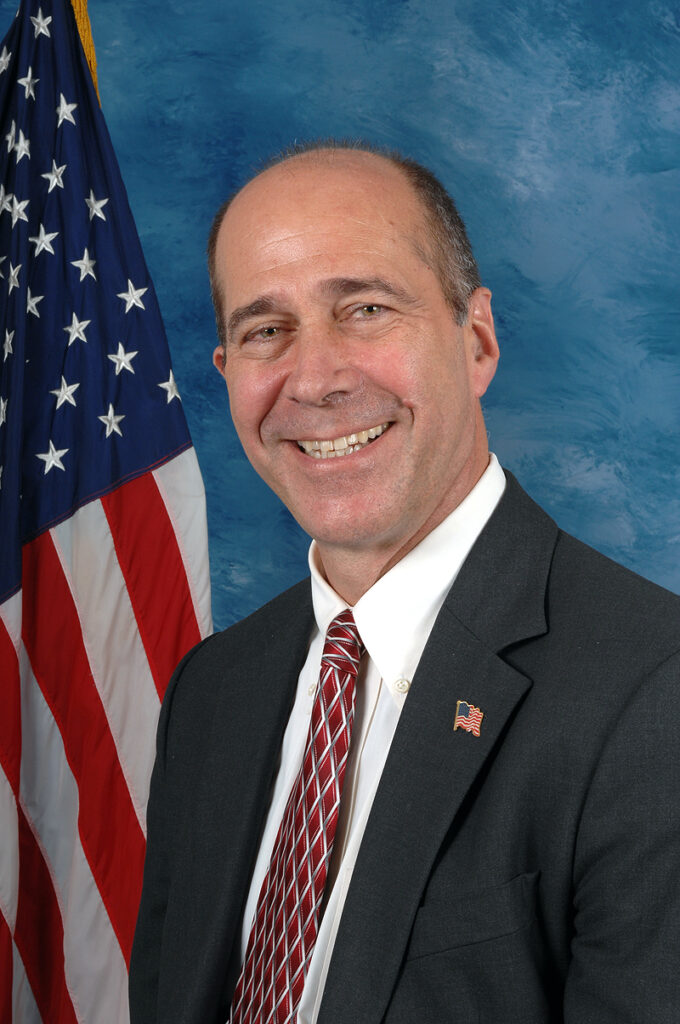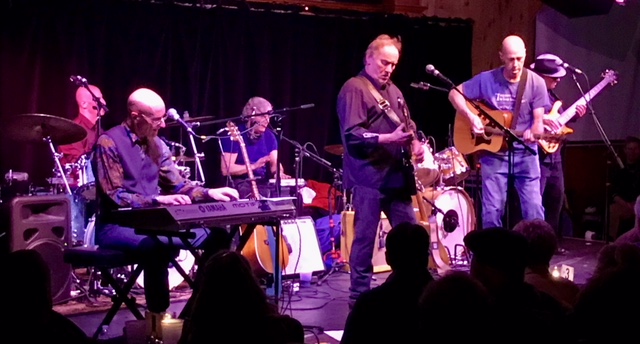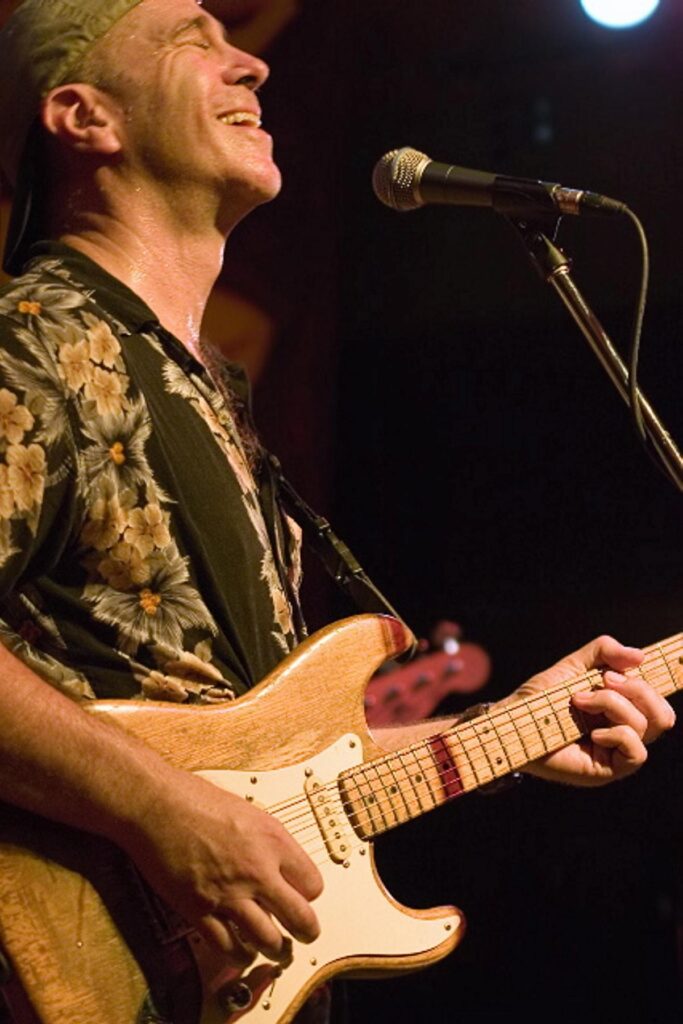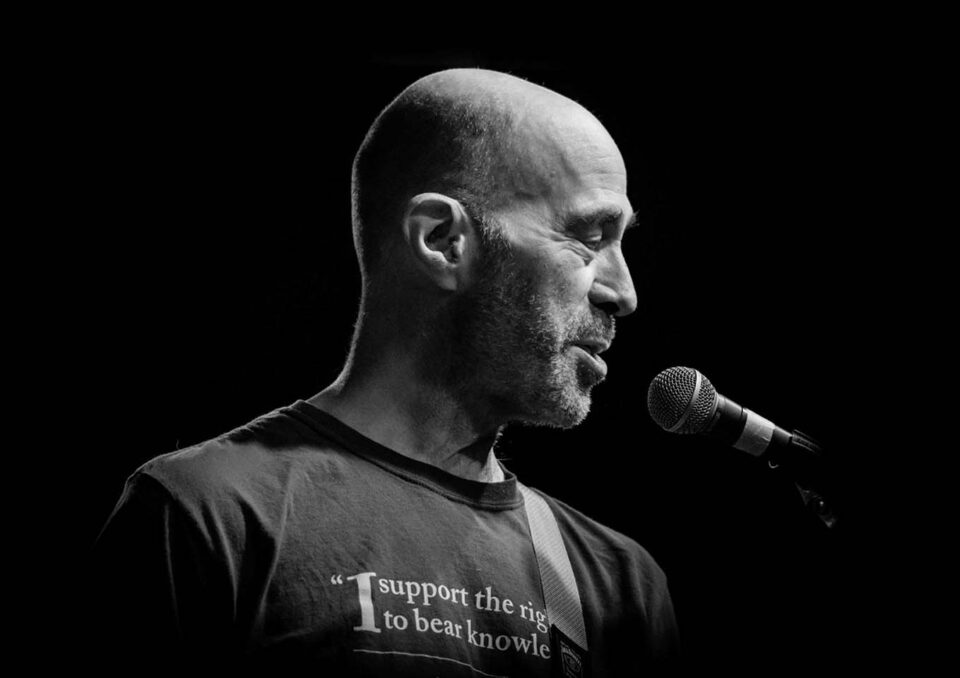Of all that John Hall gained from his years in Congress, one thing he might have least expected was a title for his solo album Reclaiming My Time set for released this year. Hall is best known in the music world for his songwriting and his role in the band Orleans, which also has an album project in 2021. However, he spent ten years in public service, as school board president and trustee, county legislator, including four years in the U. S. House of Representatives for the State of New York.
In the House, he said, when someone is speaking on the floor with an allotment of time, if a colleague on either side of the aisle asks to comment, the representative can yield and then say, “Reclaiming my time, Madame Speaker, I continue to say. . . .”
The album title plays on that concept, he noted, recognizing, “That’s ten years, and that’s a big chunk out of anybody’s life. For someone who is conscientious, it is thirteen hours a day, seven days a week. You don’t get a break.” Hall realized that some people were surprised at his seeking office. “When I first ran for office in 2006,” he said, “I think people in the political world though, ‘What does this tree-hugging guitar player know about anything?’”
He pointed out that people who only knew his music might not have known he had been a National Merit Scholar and a National Science Foundation Summer Scholar for three years, studying probability and number theory in physics and calculus. In fact, he said, “Music is a lot of fractions, it’s a lot of math. . . a chart of time versus pitch. So when you’re learning music as a very young child, you’re learning math at the same time, but you’re not thinking math. You’re thinking, ‘Jingle All the Way,’ not “three—five—one—three—three.’”
Hall said people also underestimate his advantage of being comfortable on stage. “A lot of things are similar about being a musician and being a politician or a member of Congress. You also have to be the product; for artists, when you’re on stage, you’re selling a song or selling the guitar solo.”
His experience on stage, said Hall, was good preparation for a life in politics. “When I had to debate my opponent or opponents—I had run through a primary with five opponents and then one opponent in the general election—it didn’t bother me at all to be on stage and have to handle surprises. I had beer bottles thrown at me at frat parties. I can handle a few hecklers,” he said. “I knew the background information. I am an improviser at heart, something you really need when you’re campaigning.”

Now Hall is getting back to speed. Ten years ago, he packed up his office and apartment in DC and moved back to New York full time. “It took me a little while to get back to normal. No one knows because you can’t change the past anyway,” he said, “but I was wondering what music I would have been doing when I was too busy.”
Hall acknowledged his family’s influence on both his music and political careers. “My mom had a Master’s in English and Divinity, so it was an interesting family. One of my brothers became a priest, one became an actuary, and I fell in between, somebody who writes songs that are too preachy,” he joked. They recognized early both his musical interest and ability.
His parents knew he had innate talent when he started playing the piano at four and a half. “My parents sent me to take lessons when they heard me playing ‘The Marine’s Hymn’ with both hands and making sense.” They sent him to his distant Aunt Ethel for lessons. She started by having him stand with his back to her, facing out the window, while she played notes and had him name them. Within a couple of months, he said, “I had developed perfect pitch. I had an aptitude, I’m sure, but it was that training. Ear training for a young child works especially well You can learn anything when you’re young.”
Hall continued taking classical lessons on piano for eleven years, playing French horn in the high school band. Along the way, he taught himself to play guitar, drums, and bass and started playing in bands as a teenager. He managed to skip two grades in school and attended Notre Dame University when he was sixteen. After a year, he transferred to Loyola in Baltimore for a semester.
“All I wanted to do was stay up at night playing guitar, playing mandolin in a bluegrass band, singing in an acapella group, playing frat parties or playing field drum in a marching band at football pep rallies. Any kind of music, I was down for it.”
He went to Georgetown, started playing clubs, and put together a band. At the time, Roy Buchanan was playing up the street, and Emmylou Harris was playing at the Silver Dollar. He took a bus to New York and got a gig with guitarist Teddy Speleos, who was even younger than Hall, playing in Greenwich Village in a band they called Kangaroo.
He met his first wife and co-writer Johanna, and they married and started on a songwriting career. A big break came as a result of a music review Johanna wrote while working for the Village Voice after Janis Joplin released Cosmic Blues, her first album after leaving Big Brother and the Holding Company.
Hall said, “A lot of rock and roll press was saying, ‘You abandoned your brothers in the commune. How could you do that?’ but Joanna wrote that it was actually more musical, more in tune. The album had horns. Janis had always admired Aretha, Mavis Staples, and people like that and was trying to be an R&B artist. She was terribly critical of her own singing.”
After reading the positive review, Janis asked Johanna to interview her. Johanna took a bus to meet her at a Greek restaurant in the West Village. An hour or two later, as John sat at home playing guitar and listening to music, Johanna returned with Janis Joplin in tow.
“It was Christmas time, so Janis and I ended up sitting around singing blues versions of Christmas carols,” he said, imitating their rendition of “O Little Town of Bethlehem.”
“She sang it with that gravelly, screaming voice. I played guitar, and we were laughing when she asked if I wrote songs.” When he played a couple of songs for which he had written the lyrics and the music, she said, “That sounds like a young guy writing.”
He said, “Well that’s me.” She then turned to Johanna and said, ‘You’re a writer. You’re a woman. I want you to write me a song that a woman would want to sing.’”
In response, said Hall, “Johanna wrote the lyrics to ‘Half Moon’ and handed them to me. I came up with the music, and the rest was history. That stroke of luck led them to California to meet up again with Janis, where they ending up staying a year. They went to her house, played her the song, and she loved it.
“I taught it to her band, at that point–the Full Tilt Boogie Band–and she recorded ‘Half Moon’ for the Pearl album. She did a scratch vocal, thank God, and then died before the album could be finished. What you hear on a bunch of those songs, ‘Half Moon’ included, is her guide vocal, her scratch vocal as they call it, but it just shows what a performer she was.”
“Half Moon” ended up as the B side of “Me and Bobbie McGee,” the Kris Kristofferson song Janis Joplin made her own. “Half Moon” was later covered by James Brown, the Fifth Dimension, and Chaka Khan, taking on a life of its own.
John and Johanna realized the role of luck and timing as they kept working to hone their songwriting craft. John said, “It took a while. As Johanna likes to say, ‘It’s like bowling a strike your first time. You throw a lot of gutter balls before you figure how to get back in the strike zone.’ So we wrote a lot of songs, and eventually we were able to write good songs on a regular basis.”
The Halls settled in Woodstock, NY, where in 1972 he founded the band Orleans with Wells Kelly and Larry Hoppen, joined later by Larry’s brother Lance. The band name was a nod to the kind of music they played, R&B, covering songs by the Meters and the Neville Brothers.
Signed with ABC Records, they recorded their self-titled album Orleans in Muscle Shoals, produced by Barry Beckett and Roger Hawkins. Hall said, “It was hallowed ground to us. We were listening to those guys, listening to Muscle Shoals music, and we were listening to Memphis-based music, and New Orleans and to reggae–a lot of Jamaican music. Our drummer was so nervous playing in front of Roger Hawkins, the legendary drummer.”

“We played our own instruments on ‘Dance with Me,’ ‘Still the One,’ ‘Let There Be Music’ and all these other songs. As it wound up, the only place that not all the band was allowed to play their own instruments was Nashville.” There, Hall said, they had wonderful musicians, legendary producers; in 1986 in Nashville, the artists’ road band never played in the studio.
“We were our own road band, and Larry and I actually played most of the guitar, but we had David Hungate playing bass and the late Larry Londin playing drums. We had Bela Fleck, Steve Wariner, and Chet Atkins sitting in. It was an incredible experience for us. but we weren’t quite country enough for country music, and that record wasn’t quite pop enough for pop either, so it kind of fell in between.”
When John Hall left the band to pursue a solo career in 1977, the other members continued to tour and play clubs as Orleans, but then went in some different directions. The untimely death of original member Wells Kelly brought some of the members together for a reunion and memorial where they reconnected. They reunited to cut that Nashville album Grownup Children in 1986.
Orleans went through a number of years playing together and then taking breaks, culminating in their live CD/DVD We’re Still Having Fun in 2006 before Hall took a turn into politics.
Before the pandemic hit, however, Orleans was back and ready for action. Then the band’s busy 2020 schedule was either cancelled or postponed in March. Some dates have been rebooked on a wait-and-see basis. John said, “We’re booked March on through the year. The question is when the promoters will actually feel that they can get enough audience in their seats to make it worthwhile to have a chance of not losing a ton of money. They’re the ones who take the big risk. Most people don’t realize that good promoters usually make their money from the last 20 or maybe 10% of the proceeds. They have overhead; paying the band, sound and lights, paying for the advertising, renting the venue all cost money. So it’s tough, even tougher on club owners.”
Respecting the limitations imposed by Covid-19, John Hall and the current Orleans band members have been busy and creative. Orleans released the single, “Home,” showcasing the band’s iconic harmony. The song, co-written by John Hall, Johanna Hall, and Don Schlitz, originally appeared on a 1999 solo record by Hall.
They recorded “Home” as Orleans in the fall, working in isolation, careful about safe distancing. Hall joined Lance Hoppen on guitar and vocals and drummer Brady Spencer in his basement, with Rob Arthur showcasing his video wizardry. Fly Amero added his guitar and harmony vocals from Gloucester, MA; Lance’s brother Lane Hoppen recorded keyboards, trumpet and harmonica from Orlando, FL. The song also showcases Cindy Cashdollar, well known in Nashville and the country swing world, on lap steel. “A lot of bands or musicians are getting the hang of recording this way because it’s the only way to make new music right now unless you take your lives in your hands,” said Hall.
Orleans has also been adding new video posts every Thursday on YouTube. They have been surprised to discover video and audio footage from past performances and recordings, he said. “Boxes and bags full of tapes in every format—reel-to-reel, cassette tapes, VHS back when it was used to record digital format.” They even discovered sets from the Jabberwocky, a Syracuse, NY, club where they played several years ago. On the second night there, said Hall, they were joined by Jackson Browne and David Lindley, who had been playing at some bigger venues nearby.
“We’re also doing totally new songs, and I am actually finishing up a record of new songs,” said Hall. The first single release from his upcoming album is “World on Fire,” inspired by the Australian wildfires and their metaphorical significance. It has been out on streaming platforms since August of 2020 with a lyric video on YouTube.

For Reclaiming My Time, Hall is bringing a full slate of talent. Sean Paddock, a fine studio drummer who plays with Kenny Chesney on the road, played on most of the songs on the new record. Much of the recording was done in Sean’s home studio. John Cowan, Andrea Zonn, and John Paul Daniel provided harmonies, with Cowan and Daniel on bass as well. Dan Dugmore joined on steel for one song.
John and Johanna also co-wrote for the first time in twenty-five years a song called “Now More than Ever,” that he considers a love song “because you could apply it to this whole situation and to everybody. These songs, like most of the songs I write, come out of personal experiences. Occasionally, I’ll write as a character but most of the time, it’s something I have personally seen or experienced.”
Hall has found himself productive during the pandemic, acknowledging that his are “first world problems. I have a roof over my head, food in the fridge, electricity, running water, and fortunately, I have royalties that I could live on if I have to. Unfortunately, many people don’t have that kind of stability to be able to wait out this pandemic until the vaccines are working. So I know how blessed I am.”
Both in his solo career and with the band Orleans, John Hall is not only “still having fun” but he is sharing the fun and the message as he keeps making music.

